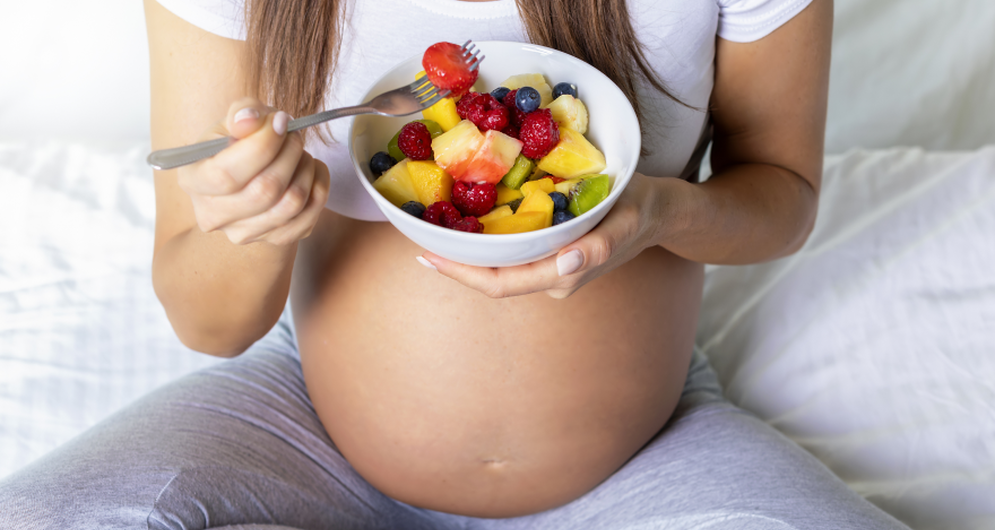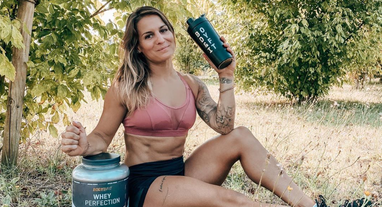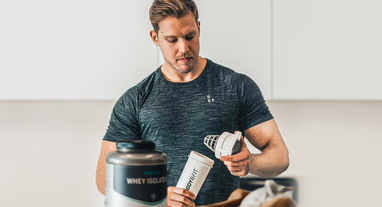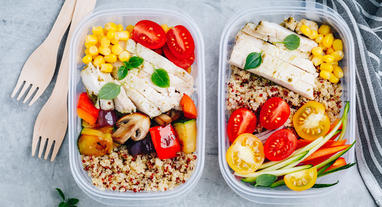Nutrition During Pregnancy

Whether you’re trying to conceive or are pregnant already, there’s a LOT of information out there about how best to support your body through the process. It can be overwhelming, so we’ve put together some simple tips about the best supplements you can take before and during pregnancy to help support you.
FOLATE (B11)
First up: folic acid (vitamin B11). Take 400 mcg of folic acid for four weeks leading up to conception and until you are at least ten weeks pregnant. The vitamin reduces the chance that your child will be born with an open back by 50-70%. It is already present in your diet, but it’s not feasible to get enough from food alone, so a folic acid supplement is a must before and during your pregnancy.
VITAMIN D
During pregnancy you have a greater need for vitamin D because it helps to absorb calcium in the bones and has a beneficial effect on your immune system. In addition, some reports suggest it can help prevent gestational diabetes, pre-eclampsia and low birth weight in babies. It is recommended to take 10 mcg of vitamin D daily in supplement form, even if you eat a healthy diet and are outside a lot (it can be produced by your body under the influence of sunlight).
MULTIVITAMIN
Not all women get enough fruit and vegetables, only 5% eat enough vegetables and 10% eat enough fruit. It is wise to eat varied and nutritious foods, but this can sometimes be difficult. That is why it is advisable to take a multivitamin as a supplement . In this way you fill the shortages in your nutritional menu.
FISH OIL
Omega-3 and 6 fatty acids from cold-pressed oil, nuts, seeds and fish play an important role in maintaining the hormone balance. It can help prevent preeclampsia, mood swings and postpartum depression. It is certainly wise to add these foods generously to your diet. In practice, it appears that only 17% of women in the Netherlands eat enough fish. The healthy properties of fish are important for the development of the brain and eyes of your unborn child. If you don't like fish or don't eat fish twice a week, a fish oil supplement can offer a solution.
BE CAREFUL WITH VITAMIN A
An overdose of vitamin A can cause birth defects in the unborn child. Many vitamin preparations that are specially made for pregnant women often contain beta-carotene, also known as provitamin A. This is a safe form of vitamin A because the body cannot convert more beta-carotene than it needs. The intake of beta-carotene can therefore never lead to too high a vitamin A content in your body.
NAUSEA
Feeling sick is a well-known symptom during pregnancy, especially in the first month. This is because of the production of a certain hormone (HCG) that the body reacts to. This hormone peaks between weeks 9 and 16, so you may feel sick during this period. Vitamin B6, Vitamin K, Magnesium and Ginger Root can help reduce nausea, so try to increase your intake of vegetables, fruit, milk, meat, eggs and grains. Ginger can be a nice addition to dishes, but is also great for making tea.
FATIGUE
Unsurprisingly you might feel extra tired during your pregnancy; that’s because there’s a lot going on in your body and this uses up energy. Eating plenty of fruit and vegetables can help keep your energy levels up but if you’re not a fan, try putting them in a smoothie to get your daily nutrients. For an extra boost, try chlorella; this algae is a real superfood and gives you lots of energy. You can take it in tablet form or add it to your smoothies. Make sleep a focus too: a cup of chamomile tea before bed can help you feel calm and sleep soundly.
BLADDER PROBLEMS
Bladder infections and other bladder problems are unfortunately more common when you are pregnant. Good resistance can make you less susceptible to this. A varied diet with lots of nutrient rich-foods can help with this. Vitamin C and cranberries can also have a beneficial effect on your bladder. Vitamin C can be found in cabbage, potatoes, fruit and in superfoods (camu camu, acai, acerola). You can enjoy cranberries in juice form or as dried fruit, (try adding them to yoghurt, a smoothie or oatmeal).
SLOW DIGESTION
During pregnancy your digestion might feel sluggish; this is because of the pressure on your internal organs, changes to your circulation and the fact that you may be less active than usual. To help your digestive system, choose fibre-rich foods - whole grains, fruit and vegetables – and drink plenty of water. Eating small meals regularly and getting some exercise will also have a beneficial effect.
DIET & EXERCISE
During pregnancy you might be craving all sorts of foods that you didn’t even like before and that’s absolutely fine. But you’re trying to avoid gaining more weight than necessary, try to have a varied diet that includes plenty of vegetables, fruit, fish, nuts, whole grains and lots of water. Aim to eat at least 5 small meals throughout the day to keep your metabolism going. You might be finding it harder to move easily, but it can really help to do some gentle exercise like pregnancy yoga (good for mind and body).
It is understandable that you may want to immediately lose any weight you gained during pregnancy, but it’s really important to give your body time to recover. Exercising immediately after giving birth isn’t sensible; you can gradually pick it up again in the long run. Similarly, it’s not wise to start dieting straight away; if you’re breastfeeding, this could have negative consequences because your baby will get fewer nutrients. Get enough rest during and after your pregnancy and let your body slowly find its balance.
Q&A
CAN I USE SUPERFOODS DURING PREGNANCY?
If you were already using superfoods before your pregnancy and you stick to the recommended amounts, it won’t hurt to continue. It is not advisable to suddenly start using a lot of superfoods during your pregnancy. If you still want to add one into your diet, build it up slowly and don’t start by using it daily. Think of superfoods as a supplement, not a replacement for your daily diet.
WHAT ABOUT PROTEIN SHAKES?
In principle, it doesn’t hurt to use protein shakes when you are pregnant, but that does depend on why you’re using them. If you were using protein shakes to lose weight before your pregnancy, then it is not recommended. It is not wise to diet while pregnant as the baby needs enough vitamins and nutrients to develop optimally. If you exercise and use protein shakes to recover or for muscle building, it won't hurt. As with superfoods, think of a protein shake as a supplement and not a meal replacement.




